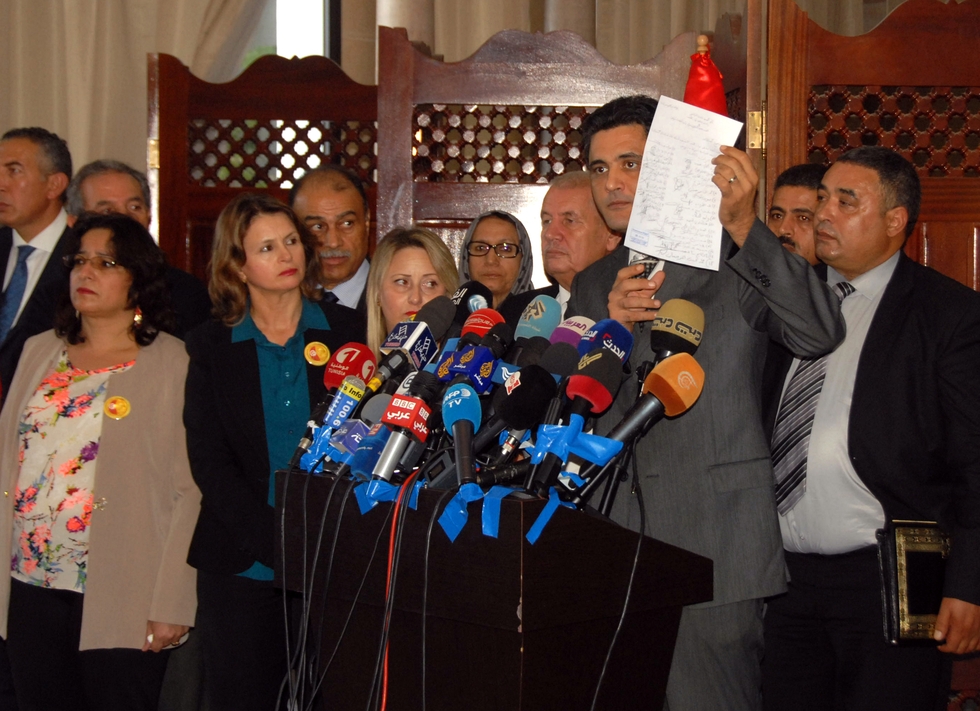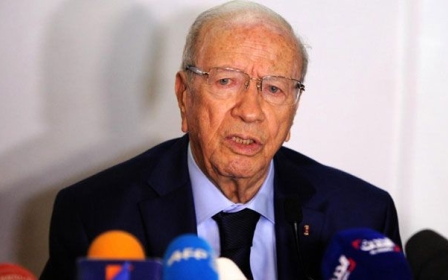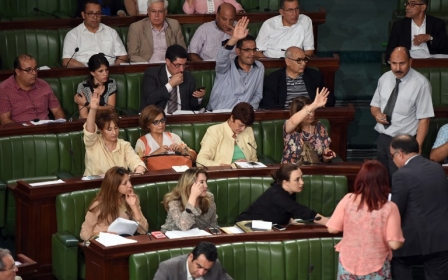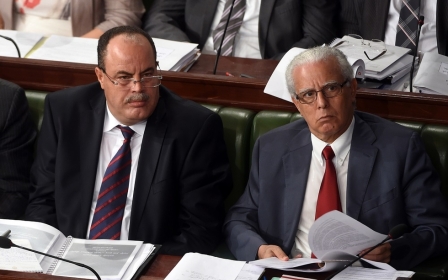Tunisia MPs resign to stop creation of 'dynastic legacy' by country's president

TUNIS - A prominent Tunisian MP who has resigned from the main party in the country's ruling coalition told Middle East Eye on Monday that they made their decision because the country’s president is trying to create a new dynasty.
Lazhar Akremi, Tunisia’s former minister of government and parliamentary relations, said that he believes President Beji Caid Essebsi is “attempting to install a dynastic legacy by increasing the power of his son Hafedh Caid Essebsi”.
Essebsi hails from the Nidaa Tounes Party, which won a plurality of seats in the October 2014 elections.
On Sunday a group of 32 Nidaa MPs stated their intention to resign, which, if confirmed, would reduce the party’s seats from 86 to 54.
It would lead to Nidaa having fewer seats than their coalition partner, the Islamist-oriented Ennahda Party, which could lead to a parliamentary crisis.
Nidaa, which was co-founded by President Essebsi, has been ridden by infighting for months.
The group of nearly three dozen MPs who resigned on Sunday are seen as supportive of the Nidaa’s secretary general Mohsen Marzouk, who has also accused President Essebsi of trying to seize control of the party.
Both Akremi and Marzouk have rallied around this claim to stir up dissent in Nidaa.
One of the resigning MPs, Mohamed Troudi, told MEE that their decision to leave the party was made in part because of the leadership’s decision to share power with Ennahda.
Nidaa campaigned last year on a ticket of opposing the Islamists of Ennahda. The new party brought together figures from the regime of Zine el-Abidine Ben Ali, which was deposed in 2011 by popular protests, as well as from liberal factions – together they successfully fought to outnumber Ennahda at the polls.
Troudi said internal party politics has also played a key role in the MPs’ decision to leave Nidaa.
He blamed a “lack of communication” for the resignations.
“The ruling party centralised the power and prevented many MPs from providing their input in decisions,” he said.
Sabrine Goubantini, another of the resigning Nidaa members, recently told Mosaique FM that she did not blame President Essebsi directly for the party infighting but did point the finger at “those who speak on behalf of him” as having polarised disagreements.
Karim Baklouti Barketallah, who serves on the Nidaa Tounes National Council, told MEE of his solidarity with the resigning MPs.
He said “they are defending the original purpose of Nidaa, which was to create political balance and view Ennahda as the competitor”.
Ennahda figurehead Rachid Ghannouchi has expressed sympathies for the plight of Nidaa as a party, and has told local media that his party is committed to working together with Nidaa and the Prime Minister Habib Essid.
Yusra Ghannouchi, Rachid’s daughter and Ennahda spokesperson, told MEE that her party has always “stressed that the stability of political parties is important for Tunisia's stability”.
“As the party with the largest share of the vote in the elections, we believe Nidaa Tounes' stability is important for Tunisia's stability,” she said. “The coalition government has embarked on economic reforms that Tunisia urgently needs.”
“The stability of the coalition government is critical at a time when Tunisians want to see these reforms succeed.”
Seifeddine Ferjani, a researcher for the Round Table Studies group who is also close to Ennahda, told MEE that if the resignations are confirmed they could empower both Ennahda and the Tunisian General Labour Union to implement their political agendas more freely.
He added, however, that he is worried about “potential government instability”.
Ferjani said the resignations will be confirmed by the end of the week, but that at least 10 of the 32 MPs are considering whether to follow through with their decision.
Middle East Eye propose une couverture et une analyse indépendantes et incomparables du Moyen-Orient, de l’Afrique du Nord et d’autres régions du monde. Pour en savoir plus sur la reprise de ce contenu et les frais qui s’appliquent, veuillez remplir ce formulaire [en anglais]. Pour en savoir plus sur MEE, cliquez ici [en anglais].




